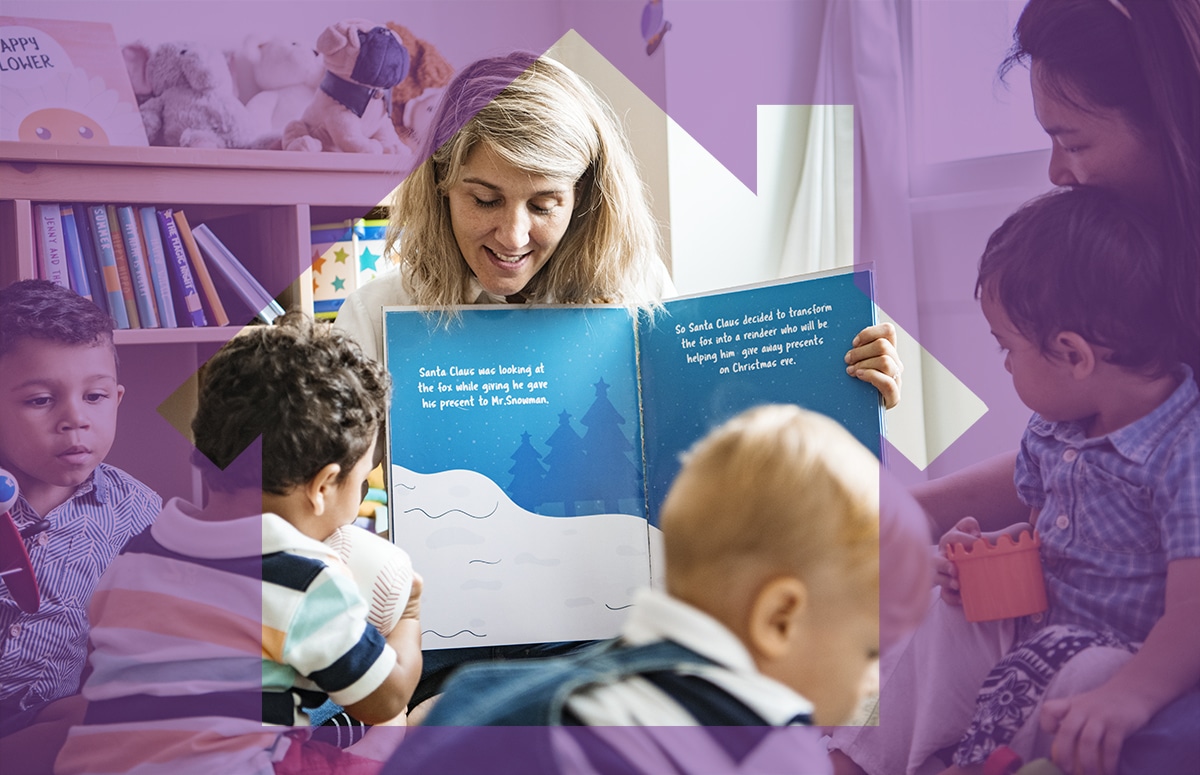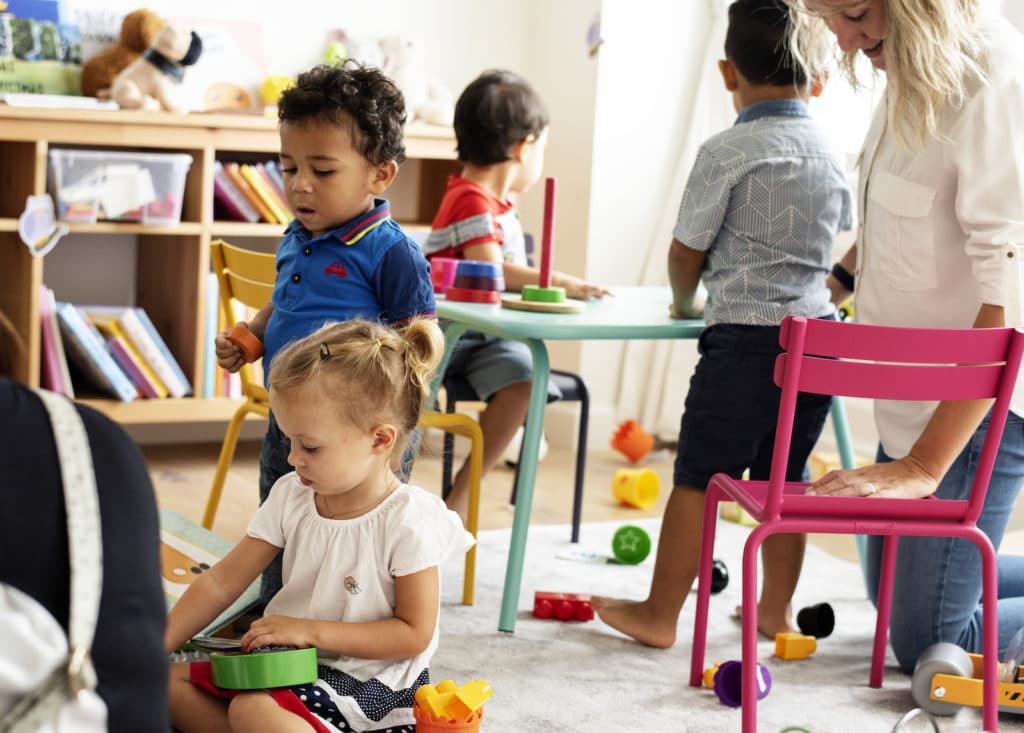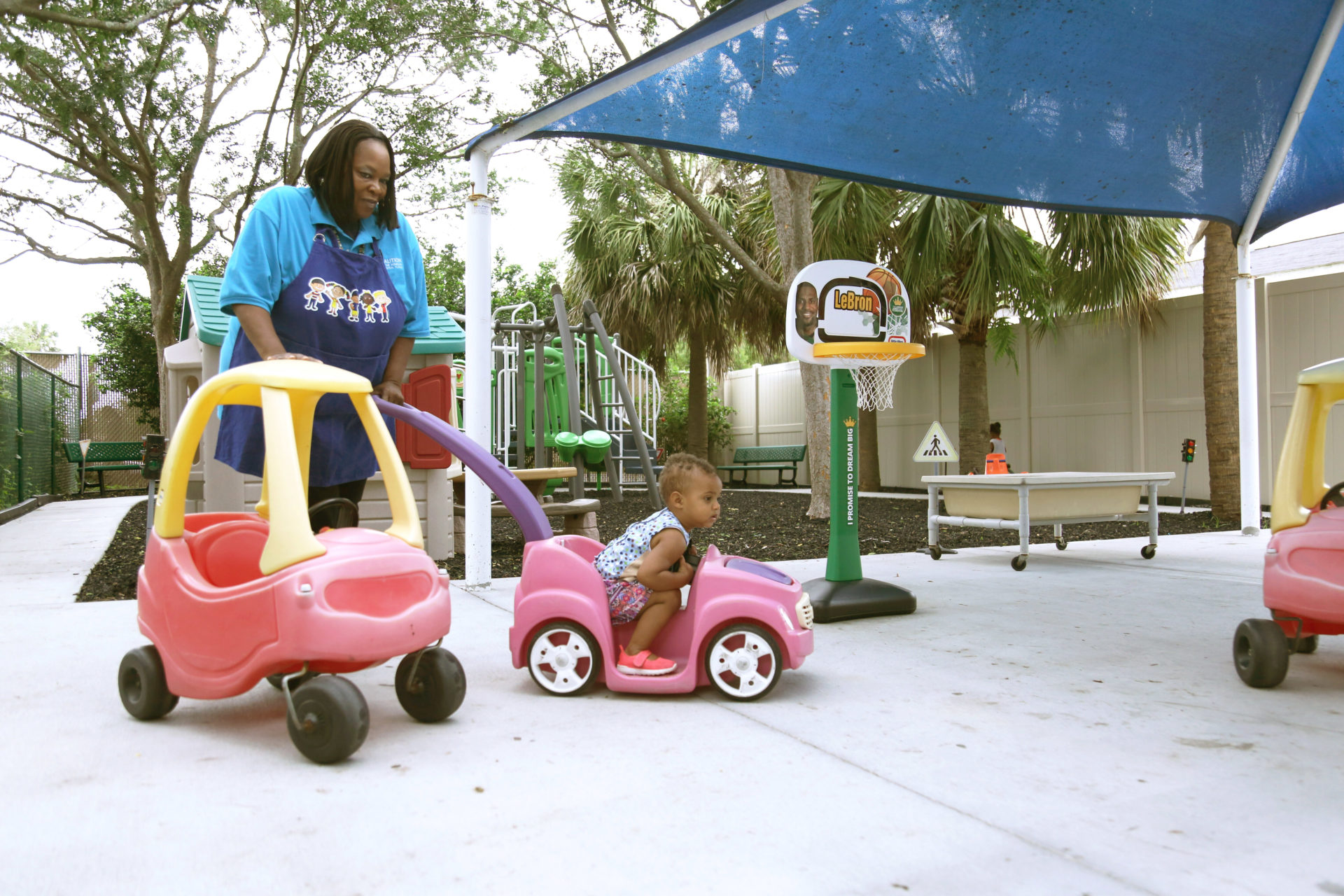Family child care (FCC) providers play an essential role in infant and toddler care across the country, particularly in areas that are otherwise underserved, known as “child care deserts.” Unfortunately, they also often face a deep sense of isolation, encountering logistical and cost barriers to engaging with state quality improvement systems and to becoming licensed.
The state of Colorado is seeking to combat some of these challenges by piloting a systems-level approach to supporting FCC providers, rolling out LENA Grow practice-based professional development to address caregiver-child engagement county by county. (We explored the details of the implementation in a special webinar last spring — click here to watch if you missed it!)
The program fits in well with Colorado’s Expanding Quality in Infant Toddler Care (EQ) initiative, program manager Lisa Matter explained, because it is strengths-based, rooted in research, and focused on relationships.
“It became clear that the fit of LENA Grow was perfect for us. Our values encourage us first to value infant/toddler early care educators. This model says ‘You caregivers, what you’re already doing in your day, you’re doing it – we just want to put words and numbers around it and give it back to you in a way that’s readable,’” Matter said.

LENA Grow’s “talk pedometer” technology captures the amount of adult words and conversational turns that children experience from hour to hour while in care. This allows providers to see and quantify the relationships that they’re building with infants and toddlers. By supporting and affirming caregivers in this work, Matter expects to see long-term positive benefits for babies.
“If every baby had just one healthy relationship, we would change the entire world,” she said. “We want to see every caregiver who has their hearts and hands on a baby receiving professional development support from us. We know that care is best when it’s supported care…when the adults are supported, they can support the children in ways that help them grow.”
The program is active in counties around the state, including Clear Creek, Gilpin, and Jefferson County. The three-county region is served by the Triad Early Childhood Council, which has helped many family child care providers access the PD program.
“As we have worked with family child care providers, our wins have been to see their wonder at how making some small changes — such as making eye contact when talking to children — can significantly improve their conversational turns week to week. We have seen growth and excitement from the providers and their desire to make improvements for all the children in their care,” Julia Brink, Quality Improvement Program Coordinator said.
The teachers showed significant growth in conversational turns from the beginning to the end of the program, she said, with some reaching more than 50 turns per hour after finishing LENA Grow. Her team used a cohort model to coach the family child care providers, creating much-needed space for everyone to connect with each other and share successes.
“A win with LENA Grow was how the participants supported one another through sharing ideas and talking about their successes and challenges. The cohort coaching with FCC providers was very successful for our organization,” Brink explained.
She sees LENA Grow as a particularly valuable resource during the COVID-19 pandemic, because it allows teachers to have control over something at a time when they have little control over other aspects of their personal and professional lives.
“By participating in LENA, not only do they get to work on their interactions with children by supporting children in the development of language skills, but they also know what day the devices are coming, what is expected of them, and how the process is set up. LENA is set up as a positive approach for coaching and focuses on what providers/teachers are doing well, and this builds self-esteem and confidence, which leads to strong goal setting and success from week to week. There is consistency and positivity in this project,” she said.






